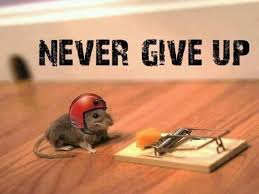 I was in a meeting two weeks ago where the CEO of a non-profit was talking to me about the financial needs of the organization. She was not in a crisis situation – but it was getting close.
I was in a meeting two weeks ago where the CEO of a non-profit was talking to me about the financial needs of the organization. She was not in a crisis situation – but it was getting close.
If I told you the details of the organization you would agree with me that finding funding for this cause would be like falling off a log. Easy.
Here is what surprised me.
As the meeting went on, this CEO must have gone through a list of 60-100 people she knew who either had given some financial support already, or they could give if asked.
If I had you review the list of people she rattled off, you would agree with me that it is a very impressive list of some very wealthy people.
So I said to the CEO: “Amanda (not her real name), I’ve been sitting in this meeting for over two hours and you’ve gone through name after name of some very impressive people you know – people who have helped you and who, if you asked them for help again, would drop everything and give you the funds you need. In fact, you have actually said they would do that. Why don’t you do it? Why don’t you ask them?”
The answer was the same one Jeff and I have heard hundreds of times. It goes like this: “I don’t feel comfortable doing it – it doesn’t feel right.”
And there you have it – a person who is afraid and uncomfortable to ask. A person who thinks the whole thing is about the money.
Here is what is so interesting about this. The very funds this good CEO needs are right in front of her. But she cannot, no matter how hard she tries, reach out and access them because she actually thinks that it will offend the donor.
So I attempted to straighten out the situation by explaining that the real thing that was going on with all of these people she had listed was this:
- Each of these donors had, buried deep in their heads, hearts and psyche a passion to DO the very thing the CEO needed the money for. This need existed in that donor before the CEO even knew them – they brought that passion with them – it was a very personal part of what they needed to DO in life. I spent a lot of time on this point because I wanted the CEO to understand that she was not inserting herself into the donor’s life in an intrusive way. No. She was simply learning that the donor was interested in and had a passion for the very thing her organization was doing.
- Each donor was looking for a way to fulfill their passions. Actively looking. Think about this in your life. When you are interested in something, do you just cast it out of your mind and forget about it? No. You dwell on it. You think about it. You take action. You do not just sit there with it. That is what I told the CEO: “Your donors want to find expression for their need.”
- The CEO would be doing the donor a favor by asking for a gift. This is the counter-intuitive part for a person who has fears around asking. They cannot see the logic of the donor’s need that is independent from them and wants to find expression. They somehow think that bringing up the giving thing is a violation of the donor. How can that be, when you are helping the donor DO what they already want to do?
Because this CEO’s beliefs on fundraising and giving were so deeply held, I am not sure I made much headway in convincing her to change her behavior and ask for the funds she needs. But I am writing about this today because I want you to make sure you have your head on right.
Do your donor a favor and ask for a gift. It will help them do what their heart longs to do. And that will be a gift to the donor bigger than the gift they will give you.
Richard
PS — For more ideas on how to solicit donors, click here for our free white paper on the topic.







Seems like she could benefit from coaching and just getting comfortable with meeting with donors first. Not every meeting wit.h a donor has to be a solicitation. Also she could get a team member to go with her on donor visits/solicitations. A board member or another member of staff maybe. True that “asking” can be very intimidating and many people need to work up to it. Start with thinking of donor meetings just as relationship building and it will get easier.